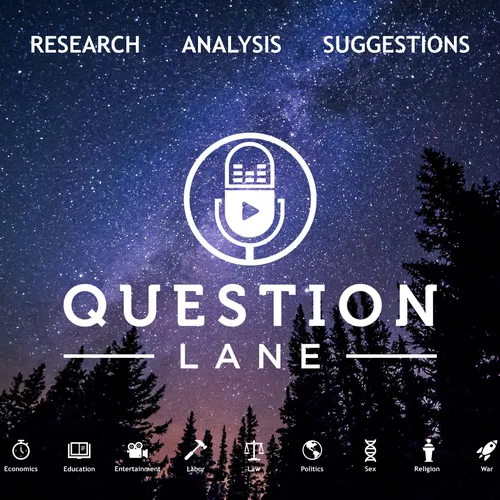QL2: The Dr. Erik Gilbert Interview
- Author
- Question Lane
- Published
- Wed 31 Jul 2019
- Episode Link
- https://questionlane.com/erik-gilbert-interview/?utm_source=rss&utm_medium=rss&utm_campaign=erik-gilbert-interview
In this episode history professor Dr. Erik Gilbert discusses his chronicle of higher education article, how dual enrollment contributes to inequality
Summary
Episode Length
1:04:58
Topics Covered
15
References Made
20
Topics Discussed
Dr. Erik Gilbert on becoming a history professor
In Part 1 Dr. Gilbert discusses his motivation for becoming a professor in history. He also discusses the origination of his interest in higher education outcomes.
Dr. Erik Gilbert on early life in West & East Africa
In Part 2 Dr. Gilbert discusses his upbringing in West and East Africa. He also elaborates on his experience as a white person in the 1960s and 70s residing in countries where his family differed from the people from an economic and physical perspective. The countries referenced in include Ghana, Nigeria, Cameroon, Tanzania, Sudan and Côte d’Ivoire (Ivory Coast).
Dr. Erik Gilbert on colonialism
In Part 3 Dr. Gilbert briefly explains British, French and German colonialism in Ghana, Nigeria, Cameroon, Kenya, Tanzania, Zimbabwe and South Africa. He also explains the identifies two applications of colonialism: administrative vs settler.
Dr. Erik Gilbert on post-colonial Africa
In Part 4 Dr. Gilbert explains the major trading partners and emerging industries in post-colonial African countries.
Dr. Erik Gilbert on inequality
In Part 5 Dr. Gilbert explains what he means when he uses the word “inequality” within the context of access to dual enrollment.
Dr. Erik Gilbert on dual enrollment and higher education
In Part 6 Dr. Gilbert explains the transformative nature of dual enrollment and its effect on the landscape of higher education. He also speaks on class sizes and who is most effected.
Dr. Erik Gilbert defines dual enrollment
In Part 7 Dr. Gilbert defines dual enrollment and explains its 3 common applications.
Dr. Erik Gilbert on the expansion of dual enrollment
In Part 8 Dr. Gilbert describes the expansion of dual enrollment and its challenges on remote/rural students. He also speaks on the rigor of dual enrollment courses taught at high schools by high school instructors.
Dr. Erik Gilbert on inequality and dual enrollment
In Part 9 Dr. Gilbert provides his suggestion for how to eliminate the inequality in dual enrollment.
Dr. Erik Gilbert on dual enrollment in Arkansas
In Part 10 Dr. Gilbert speaks on the state of Arkansas’ dedication to targeting funding to financial disadvantage students who desire to take advantage of dual enrollment. He also explains the mistrust in higher education and the perception of gen ed courses being a tax.
Dr. Erik Gilbert on free college in Kalamazoo
In Part 11 Dr. Gilbert speaks on the Kalamazoo promise and the effects of free college tuition and who benefited the most.
Dr. Gilbert on data analysis
In Part 12 Dr. Gilbert explains the difficulty level to identify which students in Arkansas would need the most help financially to participate in dual enrollment. He also explains the importance of tracking data for dual enrollment by race and income to gauge effectiveness.
Dr. Erik Gilbert on free college for all
In Part 13 Dr. Gilbert explains his position on Bernie Sanders’ college for all act. He also speaks on merit vs financial means test for free college.
Dr. Erik Gilbert on automation and UBI
In Part 14 Dr. Gilbert explains his position on why education is commonly seen as a fix to the county’s widening wealth gap. He also speaks on universal basic income and automation.
Dr. Erik Gilbert’s suggestions for students
In Part 15 Dr. Gilbert provides his suggestions to disadvantage students who want to participate in dual enrollment programs.
References/resources mentioned
Dr. Gilbert
Expanding College Access Through the Dual Enrollment Pell Experiment
Host
How Dual Enrollment Contributes to Inequality
The post QL2: The Dr. Erik Gilbert Interview appeared first on Question Lane.
